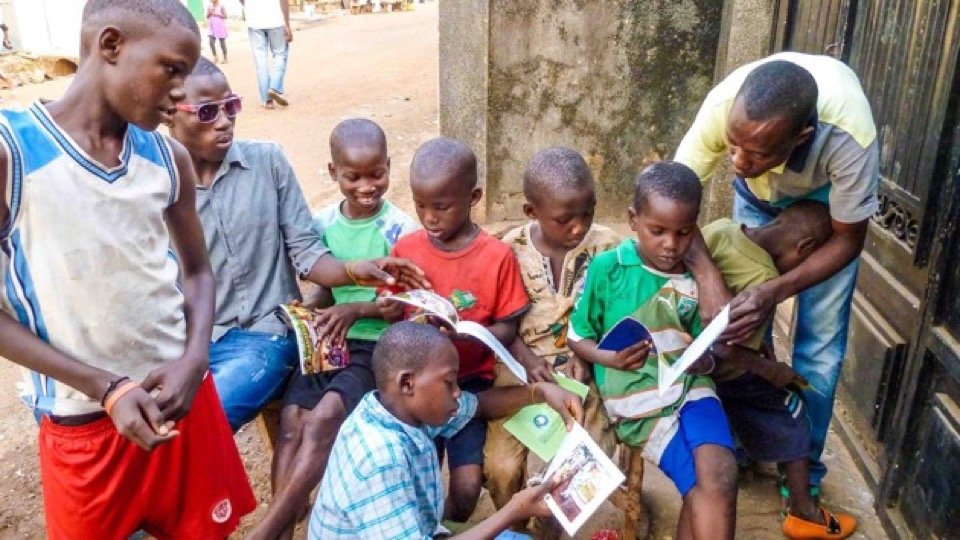The Global Book Fund Feasibility Study is out!

At the request of the main donors of the Global Book Alliance (GBA) : Books for Every Child (formerly Global Book Fund – GBF), Results for Development (R4D) and International Education Partners (IEP) have been working for the past year to understand the challenges of low availability and usage of books, and how they can be overcome.
We are glad to share that the Global Book Fund Feasibility Study is now publicly released on 8th September 2016 to coincide with the International Literacy Day. This work has been made possible by the support of the United States Agency for International Development (USAID), the Norwegian Agency for Development Cooperation (Norad), the UK’s Department for International Development (DFID) and the Global Reading Network (GRN).
The ADEA Working Group on Books and Learning Materials (WGBLM) is the technical partner of USAID for the implementation of the GBA Communication programme in the Africa Region. That is why we really hope that you will get involved in the dissemination campaign, so we are sharing with you a copy of the main report and executive summary of the feasibility study.
Also find below some keys findings of the study:
Evidence supports the role of books in improving learning and reading acquisition, yet many children around the world lack access to both reading books and textbooks.
Over the past few decades, donors, including bilateral organizations and private foundations, have provided millions of dollars in funding and programmatic support to improve book provision and usage. Despite this extensive support, there continues to be an underfinancing of books, and the problem persists.
The Global Book Alliance Feasibility Study emphasizes the need for a transformative international mechanism to mobilize funding, raise awareness, and improve the provision and use of both textbooks and reading books.
It is recommended that the Global Book Alliance undertake the following steps:
- Become the go-to source for knowledge and best practices on the effective development, procurement, distribution and usage of textbooks and reading books; advocating and instilling the importance of reading materials;
- Bring donors and diverse stakeholders together to coordinate on supply chain issues and to foster long-term policy dialogue; and
- Help countries make their book chains more efficient through finance, technical advice, and joint learning such that books actually reach students at reasonable cost and are then used by teachers and students.
The analysis was informed by data collection in 13 countries and global stakeholder consultations, drawing on relevant experiences from funds in health and other sectors as well as lessons from reading programs, commodity procurement, and provision of books.
Here is a snapshot of what was found:
- There is a lack of awareness among governments, parents, and teachers of the value of reading books in supporting literacy.
- Low and middle income countries need to spend between US$3.1 billion-US$3.9 billion yearly to meet a theoretical minimum book standard for all pre-primary and primary students. However, research is needed to understand a more realistic, current, addressable market size.
- The cost to implement a digital reading programme based on a library model is about 12-13 times more expensive than the cost to implement a similar print reading program. However, for structured reading programmes where each child is reading the same book at the same time, digital programmes are less expensive per child than print ones.
- Common supply chain challenges include weak demand forecasting, poor management systems, inadequate financing, lack of trained staff, and inefficient distribution.
- Many teachers are unaware how to appropriately use books in classrooms and how to set up and run school and classroom libraries.
We hope that these findings and recommendations will help shape the function and design of the Global Book Alliance as it moves towards its goal of ensuring that children everywhere have the books and learning materials they need to succeed.
We would love that all ADEA components (WGs and ICQNs) can commit themselves and get involved in sharing, tweeting, blogging and commenting this report.
DOWNLOAD: FULL REPORT | EXECUTIVE SUMMARY
Collected by Aliou Sow - WGBLM
(From the R4D Communications Unit)